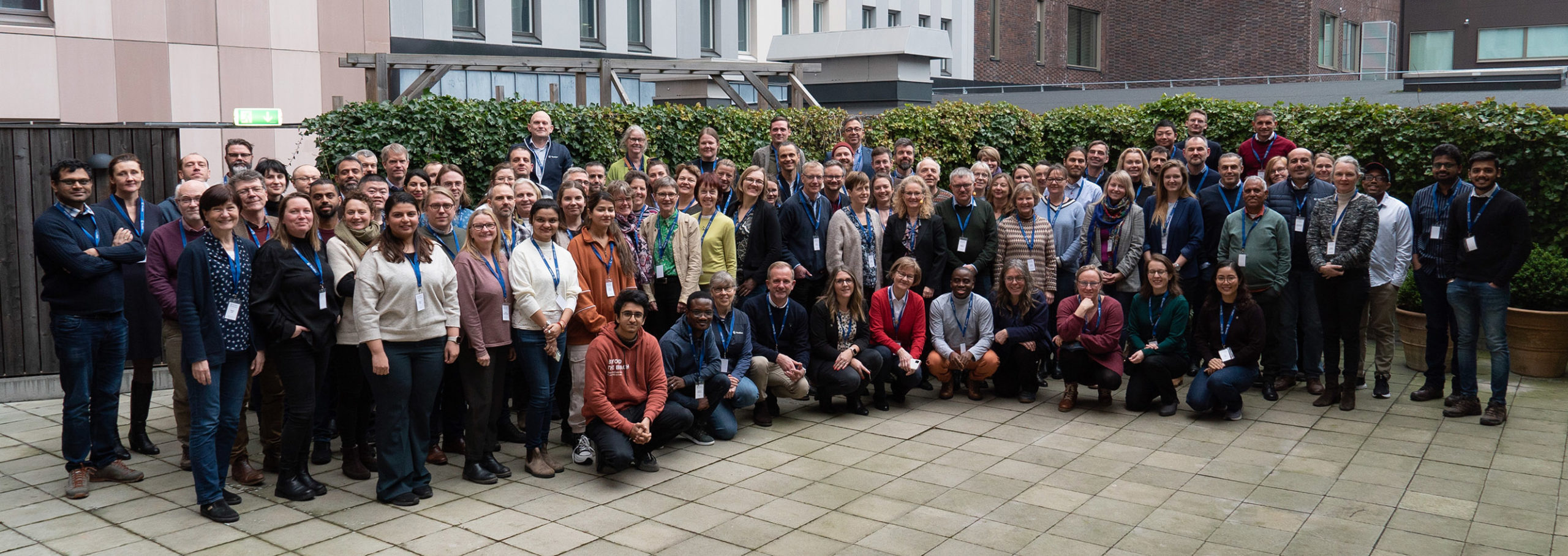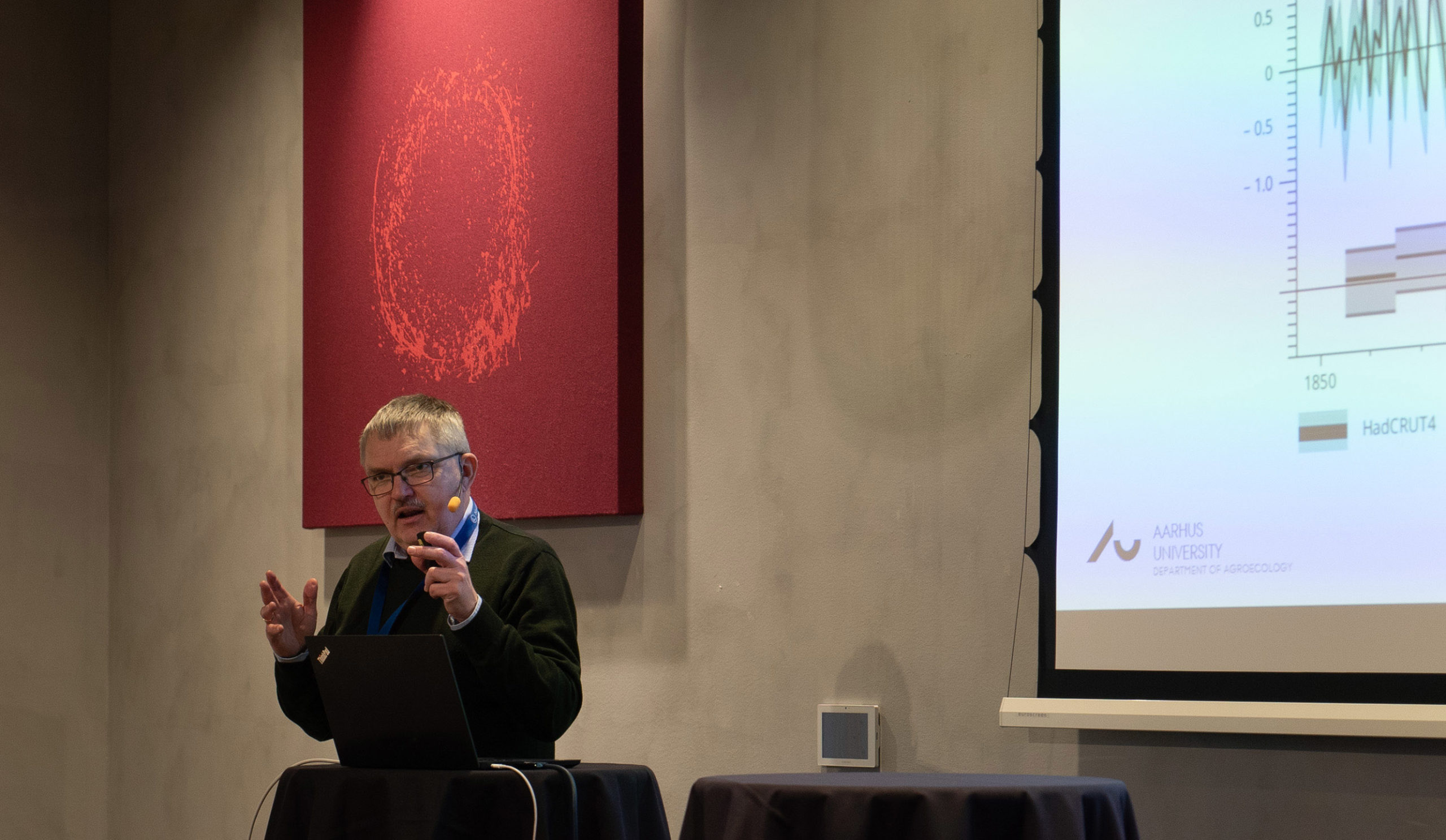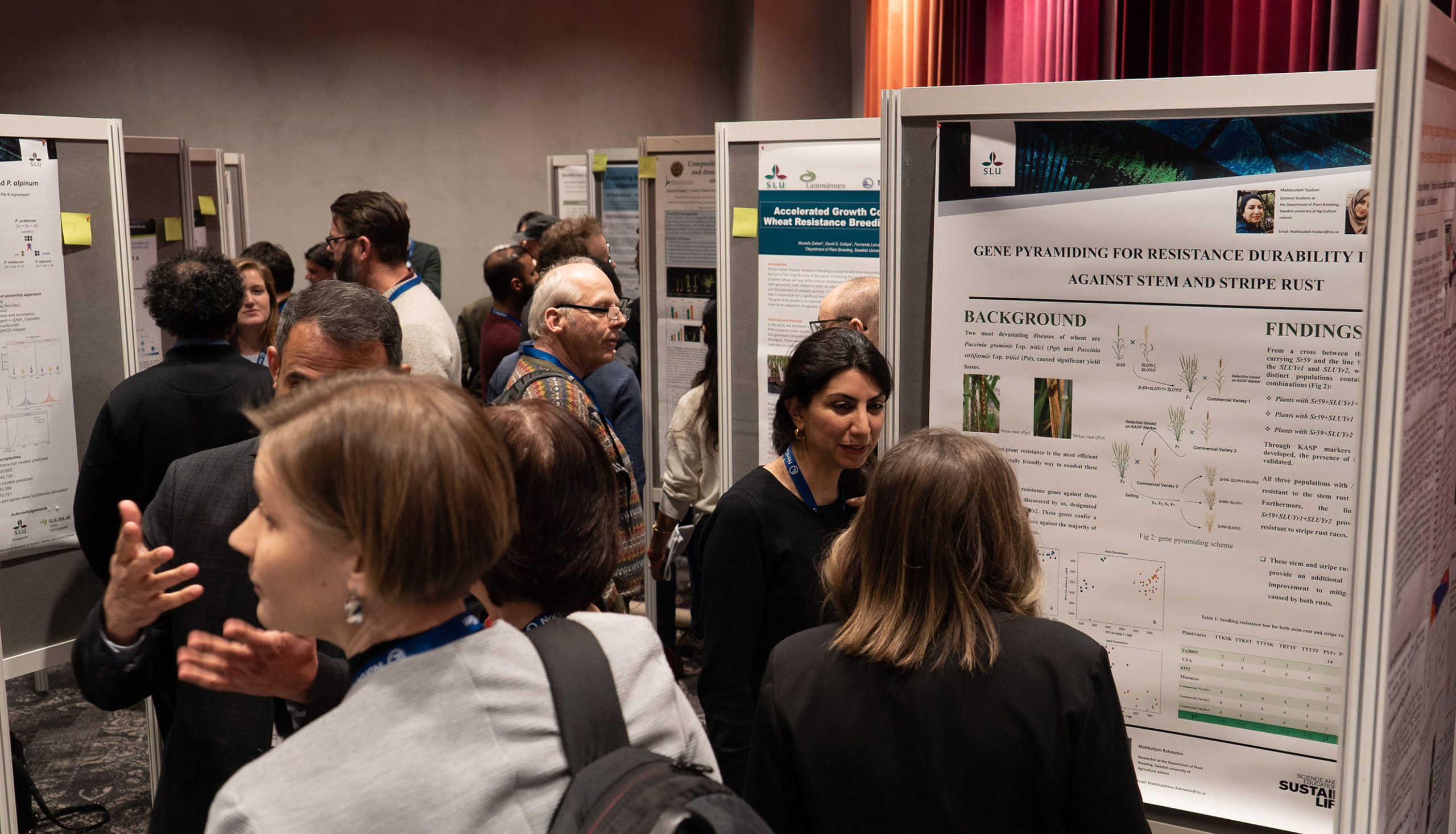Sweden
February 2, 2023

How are we to produce food to the world’s growing population at the same time as the climate crisis lead to great challenges for the agriculture? For two intense days, researchers and professionals working with genetic resources and plant breeding gather for a knowledge exchange within a Nordic context.
About 120 people participated on site and approximately 30 online when NordGen and partners organized the conference “Use of Genetic Resources in Breeding for Climate Change in the Nordic Region – Why Research and Innovation Do Matter”. The conference is based on the “Nordic Public-Private Partnership (PPP) for Pre-breeding” (read more about the collaboration in the fact box below). During the conference, which took place in Malmö 1 to 2 February, 20 speakers gave presentations and during five sessions.
 Parts of the conference participants during day one.
Parts of the conference participants during day one.
Several Difficult Challenges
The first session addressed the major challenges that climate change brings and how plant breeding’s use of genetic resources can contribute to a green transformation of agriculture. One of the speakers was Jørgen E. Olesen, professor at Aarhus University who talked about the challenges of producing food for the world’s increasing population. But also producing more fodder, biomaterials and bioenergy at the same time as soil fertility must be preserved and emissions of greenhouse gases must be reduced. And all of this needs to be done while adapting the production systems to increasingly hostile, variable and extreme climatic conditions.
“Meeting these demands would most likely require a broader range of agricultural crops and thus also of genotypes being grown. It also requires genotypes that can be adapted to the changing environmental conditions, and finally new genotypes need to be developed that contribute to lowering environmental impacts of many different types,” Jørgen E. Olesen said and continued:
“This is a massive undertaking, where access to germplasm with potential traits that can support this transition is essential.”
 Jørgen E. Olesen’s presentation was titled ”The Role of Plant Breeding for Increasing Resilience to Climate Change and Supporting the Agricultural Green Transition”.
Jørgen E. Olesen’s presentation was titled ”The Role of Plant Breeding for Increasing Resilience to Climate Change and Supporting the Agricultural Green Transition”.
Wheat a Global Crop
Olesen was followed by Alison Bentley who is the Director of the Global Wheat Program at the International Maize and Wheat Improvement Center (CIMMYT). For more than 50 years, the program has developed and delivered improved wheat varieties on a global scale. In her presentation, she talked about the importance of wheat in the world and the challenges of adapting wheat to a changing future.

Alison Bentley, CIMMYT.
“Wheat is pivotal to alleviation of hunger, eaten by 2.5 billion people worldwide. 50 percent of the world’s wheat is grown in the Global South where projected yield declines due to climate change will disproportionally impact production,” said Alison Bentley.
During the other sessions, presentations were given on how new technology can be used to improve the plant breeding work, as well as examples of the importance of genebank collections in developing new climate-adapted crops as well as examples of the importance of genebank collections for developing new climate-adapted crops.
The program also included a panel discussion and a poster session where 21 young researchers got the opportunity to present their work. The conference will be summarized in a report and parts of the presentations will be made available in the near future.
 A poster session focusing on young research was organized.
A poster session focusing on young research was organized.
FACTS: The Nordic Public-Private Partnership (PPP) for Pre-breeding
- The Nordic Public-Private Partnership (PPP) for Pre-breeding is a collaboration aiming to strengthen plant breeding in the Nordic countries.
- “Pre-breeding” is a term for the costly and time-consuming initial step of plant breeding.
- The PPP for pre-breeding is funded by the Nordic countries through the Nordic Council of Ministers as well as the plant breeding entities. The secretariat is placed at NordGen.